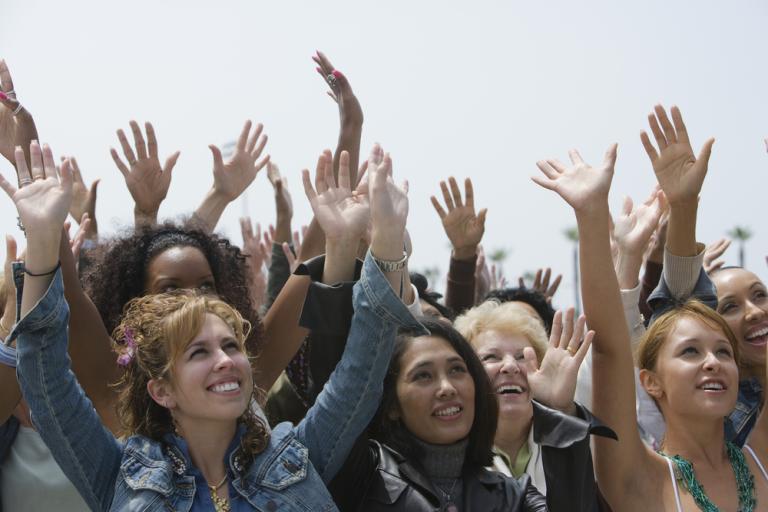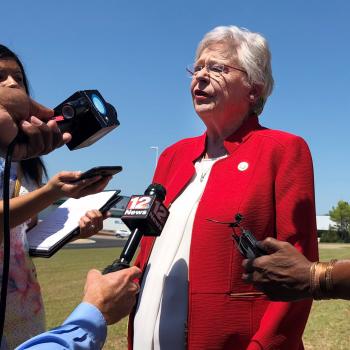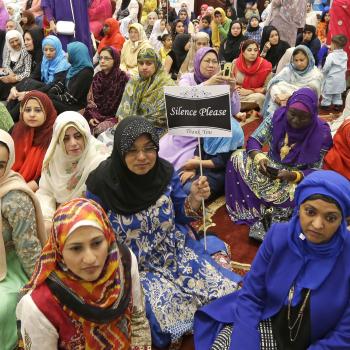By Amy Gopp, Deborah Rosenbloom, and Christina Tobias-Nahi.
So God created humankind in his image, in the image of God he created them; male and female he created them. ~ Genesis 1:27, The Torah
Let love be genuine; hate what is evil, hold fast to what is good; love one another with mutual affection; outdo one another in showing honor. ~ Romans 12:10, The New Testament
O mankind, indeed We have created you from male and female and made you peoples and tribes that you may know one another. Indeed, the most noble of you in the sight of Allah is the most righteous of you. Indeed, Allah is Knowing and Acquainted. ~ The Quran, Surat al Hujjurat, 49:13
We write for those unable to raise their own voices, and we write for ourselves. We write because our faith compels us to do so. We are Jewish, Christian, and Muslim, and we are women with a deep love for our country. We are leaders in faith-based non-profit organizations working for an end to poverty, suffering, and sexual and gender based violence, and for the safety, equity, and empowerment of girls and women. We are women who have been called to lift our voices on behalf of our sisters and brothers in the United States—especially at such a time as this, during this unforgettable presidential election season—and the world over.
Women and girls all over the world can feel it, even if they can’t put it into words. We feel it because we live it every day, in both subtle and extremely overt ways. The woman who wants more from life than she’s been granted, and the girl who continuously compares herself to impossible standards of beauty, share more than gender. They share a lack of respect.
Among the many shared values between the three Abrahamic faiths—Judaism, Christianity, and Islam—respect and honor stand out. Respect is a frame that helps us begin to define justice, a pillar upon which peace is built. Respect affirms that a person’s voice matters, that her rights and value are intrinsic to her humanity. Without respect, justice becomes a mirage deep beyond our grasp, and the chasm between the powerful and the powerless grows ever wider. Respect affirms our sacred worth.
These values are the foundation of our faiths and of our American life. Disrespecting women through objectification, sexualization, and belittlement contradicts the pursuit of justice, work that is expected and sustained by our faiths. All three of us work for gender justice within the humanitarian and international development field for organizations that reflect our values and seek to advance peace and justice around the world. Our call for alarm goes beyond the machinations of the current political season. Our voices speak in pursuit of justice globally, day after day, year after year.
Our quest for justice and longing for respect demands that we speak out. So let our united voice be heard: There is little difference between the lewd banter caught on a hot mike in Hollywood and the misguided interpretation of texts that prevents girls from attending school in Afghanistan. Behind each offense is the basic subjugation of women, a belief that fosters the misogynistic concept that women are mere possessions—whose value is often tied to their appearance or sexuality—rather than human beings. Therefore, the brand of objectification some claim is acceptable in “the locker room” is the same that sells girls into wedlock as child brides or into trafficking. We cannot speak out against one without taking a stand against the other.
Thankfully, even though they may have been written in ancient times, our sacred texts are still alive. They are relevant. And they grant us the moral courage to stand up for the sacred worth of each and every member of the human family. Our sacred texts continue to speak truth to the misuse and abuse of power. They empower us to challenge what is accepted and excused by upholding what is truly good and just, as we stand together, united, despite our differences.
We are three women who all trace our faith stories and common heritage back to Sarah and Hagar. United by that sisterhood, we seek a different world, one more like that our Creator intended, where girls and women are respected and honored. Our faith calls us to speak this truth to power in the developing world as much as in our own American context. Our shared sense of respect and justice crosses cultural, spiritual, and political boundaries, because the cost of silence, of not speaking this truth, is far too great. Our vision is for a future, beyond catcalls and conquests, filled with the promise of girls and women living life to the fullest. And our earnest hope is for a country governed by leaders, male and female, whose language, actions, and commitments make that possible.
The Rev. Amy Gopp is the vice president for External Relations for IMA World Health, Deborah Rosenbloom is vice president of Programs & New Initiatives at Jewish Women International and Christina Tobias-Nahi is director of Public Affairs at Islamic Relief USA. All three organizations are members of the We Will Speak Out alliance to end sexual and gender-based violence.













